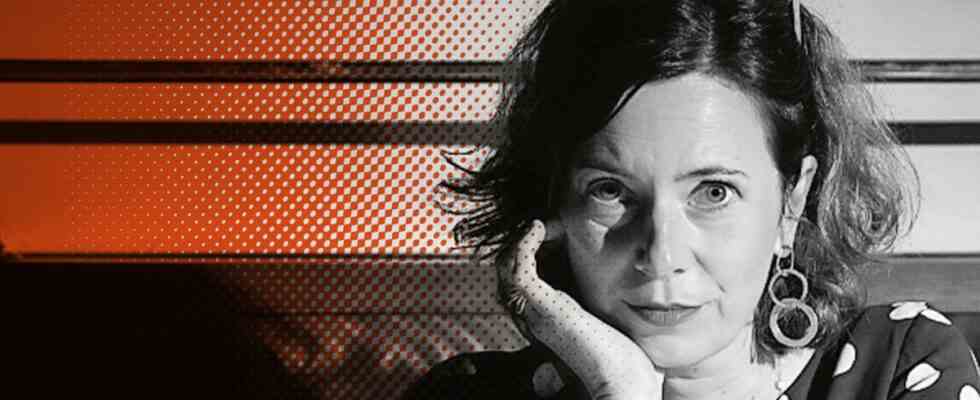Eva Menasse made a name for herself as a journalist and then switched to becoming a novelist. Her current novel, “Dunkelblum” tells of historical guilt and of how the inhabitants of an Austrian border town surround this guilt with silence.
SZ: What are you reading right now?
Eva Menasse: “The Gentile Jew” by Isaac Deutscher, a subtle birthday present from my friend Susan Neiman. I read very slowly to understand and absorb everything, it is (also) a textbook of straight thinking, breathtaking in its linguistic clarity and intellectual richness. Another essay could grow out of every line, every thought, you can almost see the buds. Reading makes me feel stupid and richly gifted at the same time, which is an ideal state.
What was the last really good book you read?
I often get my hands on older books, I rarely read new releases. I was really excited a while ago “Writers & Lovers” by Lily King. I had to laugh so much about the writing men and their typical way of dealing clumsily with colleagues without even realizing it. A very funny and true book, but unfortunately the ending was far too cheesy.
Which book should be banned?
I can’t think of any. You could probably learn something from even the most forbidden book.
Which classic did you read far too late in life?
“German Lesson” by Siegfried Lenz. I think it was only then that I understood the North Germans, their armored reverence, their taciturnity – which is so often disturbing for us South Germans – and the beauty of unspoken sentences. Quite apart from the narrative power and the human drama for which the book is famous.
What book do you hate but love the author?
I love Heimito von Doderer very much, I’ve learned an incredible amount from him, at least that’s what I think, but I can’t read “The Illuminated Windows or The Incarnation of Official Julius Zihal”, I’ve tried again and again. Terrible. Ironically, this book is his best known and most popular in Japan. Since Japan is also quite a mystery to me, of course out of ignorance, at least that seems to fit.
Which book do you have for decoration purposes only?
“The Torch” by Karl Kraus in what feels like a thousand volumes. Someone gave me one, cheap from the flea market. He said I would be happy about it. Takes up a lot of space, attracts dust like only rotten schnapps chocolates, but so far I haven’t managed to feed it back into the flea market cycle. Visiting learned men are sometimes sufficiently impressed that it is there. My real friends laugh.
A book you wouldn’t write today?
Unfortunately, the title of my first volume of essays now sounds completely wrong. In 2015, “Rather excited than clarified” was still funny, today it’s more embarrassing. Everyone is so excited, the whole world is an excitement competition. Discursive Zen would be the achievement of the hour. How damn fast that sometimes happens, like children’s fad names that are shamefully abbreviated ten years later.
When you received the Ludwig Börne Prize for your journalistic work in 2019, the incorruptibility of your texts was highlighted. Is there also literary incorruptibility?
I think so. To be committed to a human truth, to draw people no worse and no better than they are. Not writing for effect or fashion, but to explore something you didn’t know before. Do not write from the result, but spell out the question yourself.
You are spokeswoman for the newly founded PEN Berlin. How much do you actually want to have to do with other writers?
I would say that among writers the distribution of pleasant and stubborn, fascinating and malicious, deadly boring and innocent is not very different than in the rest of the population. Perhaps only the extremes, the swings up and down, are a bit more severe. But I’ve known that long enough to deal with it. By the way, being a woman also helps. We often leave our antlers in the corner behind us, so we don’t have to put them on all the time.
Read more episodes of the interview column here.

